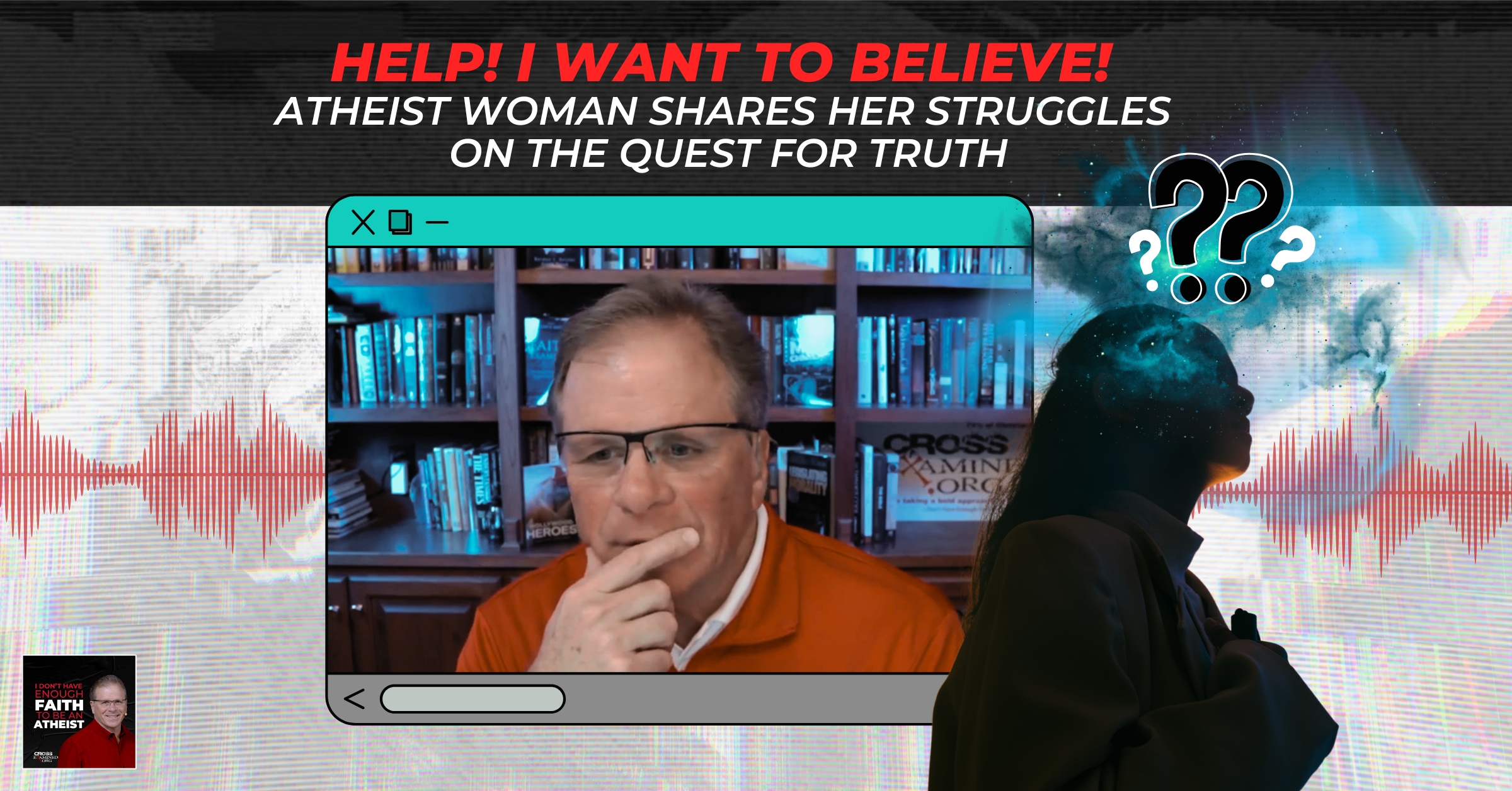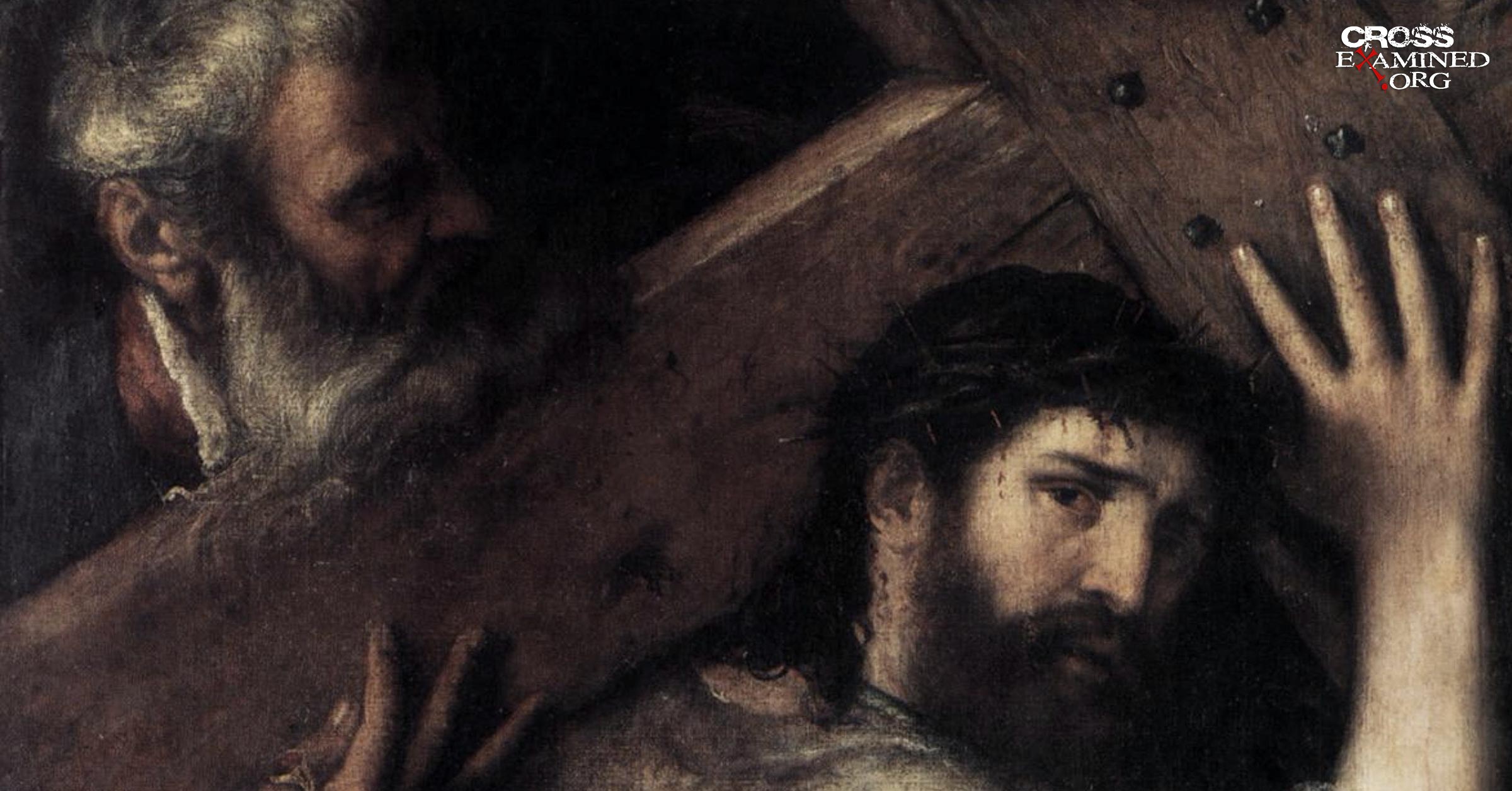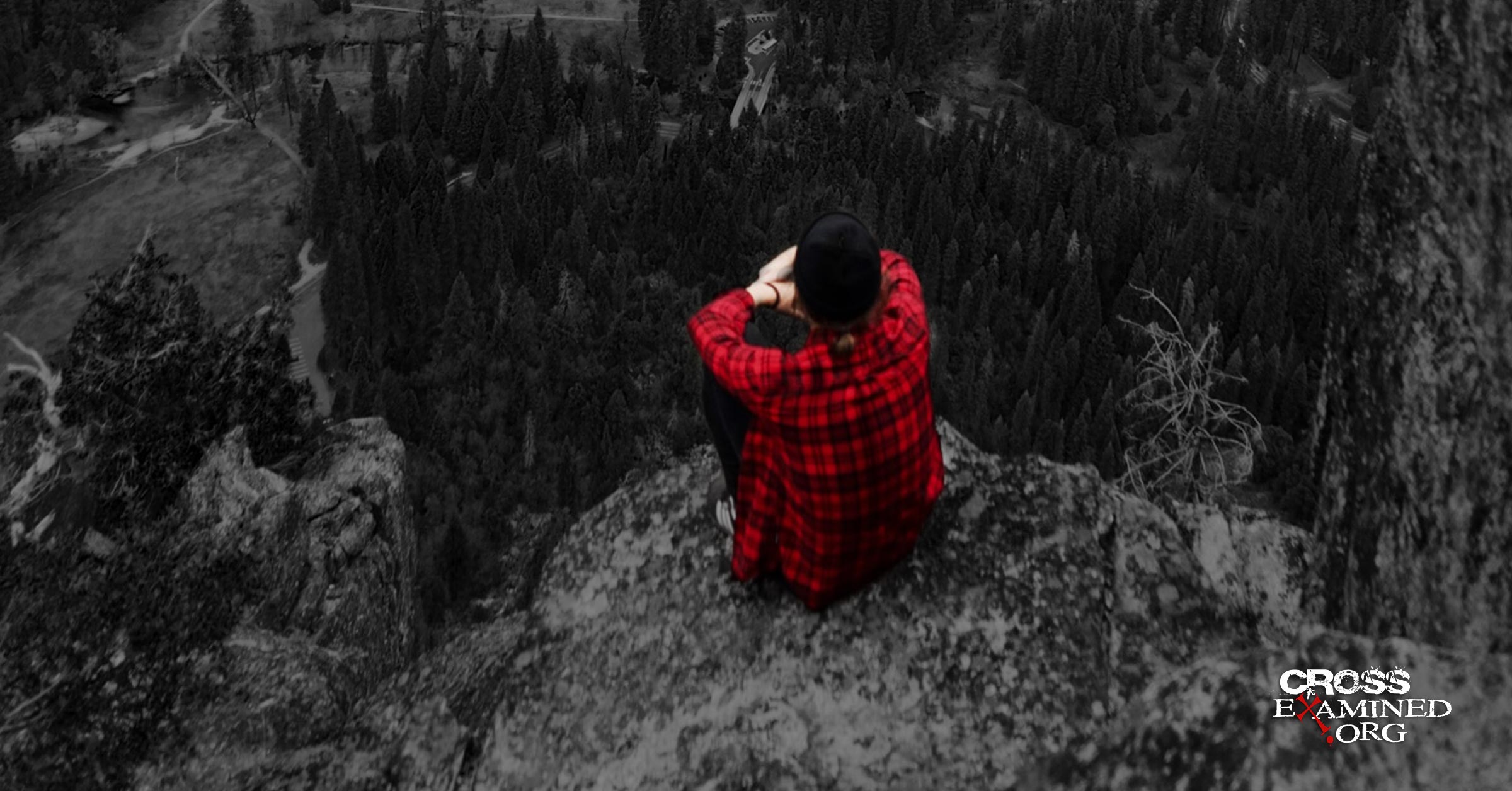By J. Brian Huffling
Does God exist? This has been one of the most asked questions in history with the most profound implications. As Norman Geisler used to say, our view of God’s existence is most important since it determines what we think about everything else. There are many arguments for God’s existence. This article will examine the standard classical proofs with typical objections and evaluations.
The proofs for God are varied and different, but they can be classified as either a posteriori or a priori. The former means the proofs are based on (or after/post) experience, while the latter are allegedly not based on experience, but prior/apart from it. A posteriori proofs are empirical in nature and take it that we can trust our senses. A priori proofs start with the mind and are thus rationalistic. All but one of the following arguments are a posteriori.
The proofs we will look at are various forms of the cosmological argument, the teleological/intelligent design argument, the moral argument, and the ontological argument.
Cosmological Arguments
Cosmological arguments are arguments based on the cosmos (from the Greek kosmos). They are a posteriori in nature, or based on experience and are thus empirical. There are many types of cosmological arguments. For a good survey, see William Lane Craig’s The Cosmological Argument from Plato to Leibniz. Here we will examine a few such as the Kalam argument and two of the famous Five Ways of Thomas Aquinas.
The Kalam Argument
The Kalam argument, popularized by William Lane Craig, is an example of what has become known as a horizontal type of cosmological argument since it argues that there is a temporal beginning of the universe in the finite past (horizontally). Here is the argument:
- Everything that has a beginning has a cause.
- The universe had a beginning.
- Therefore, the universe had a cause.
The first premise is very straightforward in saying that if something came to exist that did not exist, then it must have a reason (cause) for its existence. This is because a thing must be either (1) self-caused, (2) uncaused, or (3) caused by another. A thing that began to exist can’t be self-caused since it would have to exist prior to bringing itself into being, which is a contradiction. It can’t be uncaused since there would, by definition, be no reason for its existence, and something can’t come from nothing. It must then be caused by another. This premise has its challengers, though. Some will say that things like virtual particles come into being from nothing and for no reason. However, such is simply not the case. Virtual particles are particles that arise from unstable energy in a vacuum. Since unstable energy is clearly not nothing, this is not a counter-example.
The second premise is really the crucial premise. The Kalam was originally provided by Muslim philosophers in the Middle Ages who argued that an infinite series is impossible, and since an actual infinite amount of time in the temporal past would be an actual infinite, then the universe cannot be temporally infinite: it must have had a beginning. Nowadays it is more popular to use Big Bang cosmology to show the universe had a beginning, such as the second law of thermodynamics, the fact that the universe is expanding, and the radiation echo discovered in the 1960s that demonstrates there was a massive explosion that gave rise to the universe’s expansion.
The Big Bang model is the reigning model, and atheists do not like its implications for a cause of the universe. Good books on this type of argument include Robert Jastrow’s God and the Astronomers, Hugh Ross’ The Creator and the Cosmos, and Lee Strobel’s The Case for a Creator.
Aquinas’ 5 Ways
Thomas Aquinas’ famous 5 Ways (See Summa Theologiae Part I Q. 2. Art. 3) are other types of cosmological arguments. The first way is an argument from motion. The word ‘motion’ actually means ‘change.’ It is taken from Aristotle. Aquinas calls this “the more manifest way” since it is clear that change happens all around us. For Aristotle and Aquinas, change is when something goes from being potentially x to actually x. For example, a piece of wood can be hot, but until it is actually hot, it is only potentially hot. The actually hot fire actualizes the wood and makes it hot. Further, a thing can only be changed by something else; in other words, a thing can’t be in potency and act in the same way. So, change must be brought about by an actually existing thing. A thing cannot actualize its own potency as that would mean it would be actually and potentially x at the same time, which is a contradiction. The linchpin to this, and all of the 5 ways, is that there cannot be an actual infinite regression of causes like this. Since things are composed of act and potency, they must be put together of act and potency. But being put together like this requires a being that is either put together of these things or not, which cannot go on forever. So there must be a being that is not put together of act and potency, but a being of Pure Act (or pure existence). Such all men call God.
This is a complicated argument based on Aristotelian metaphysics. However, going through all of the metaphysical thought, in the end, pays great dividends. Much can be deduced from God being Pure Act, as Aquinas demonstrates in the subsequent questions. For example, if God is Pure Act, then he is simple, meaning he is not composed of anything. (See this article on divine simplicity.) Being composed, so the argument goes, requires a composer. So he has no potency. But potency is a requirement for change to take place. So if God does not have potency, then he cannot change. (See this article on divine impassibility which is related to this notion that God can’t change.) Further, if he cannot change, then he can’t be measured by time as time has classically been thought to be the measure meant of change. So he is eternal. (See this article on God being eternal.) In this sense, ‘eternal’ does not mean existing forever. Following Boethius, it means that God enjoys all of his being all at once. There is no succession. He is infinite and perfect (also following from Pure Act). Thus, while the argument is much more complicated than the Kalam, it tells us a lot more about God.
Objections to this argument include Newtonian laws of motion and the idea that a thing can change itself. It is argued, some say, that Newton disproved Aristotle’s point here since objects at rest or in motion stay in such a state unless impeded by something else. However, Aristotle’s point is metaphysical in nature, while Newtons’ is physical. Aristotle does not have in mind inertia, like Newton. While inertia (a thing moving in location) certainly is an example of change, it is only an example, and not change as such. Others maintain that a thing can move itself, such as one’s hand. However, the hand does not move the hand; the nervous system does, which is run by the brain, which the will moves. But such is not a counter example to the first way since the point stands that a thing in potency has to be moved by a thing in act.
Whew.
The second way is from efficient causality. It basically says that a thing cannot be the cause of itself since it would have to exist in order to bring itself into existence, which is a contradiction. There cannot be an infinite number of efficient causes since such causes are the causes of intermediary causes, and if there were an infinite number of efficient causes, then there would be no ultimate beginning to effects. An example of this, that I owe to Richard Howe, is a train. When asked what is making a particular boxcar move, one can reply the boxcar in front of it. But there cannot be an infinite number of boxcars since a boxcar cannot cause motion; an engine is required for that. This kind of causes cannot be infinite in number; thus, there must be an ultimate efficient cause that is known as God. This type of cosmological is referred to as a vertical argument since it is based on a hierarchy of causes rather than a temporal beginning in the (horizontal) past.
A typical objection to this argument is, “what created God?” While one can argue with the reasoning or soundness of the above arguments, this objection demonstrates that the objector does not understand the arguments. The first way concludes with a being of Pure Act that per the reasoning can’t have a cause. The second way is the same since there would then require a seeming infinite number of causes, which the argument denies. God as an uncaused cause cannot have a cause, or he wouldn’t be the uncaused cause. Such an objection does not apply to these arguments.
Good books on the above include Maurice Holloway’s An Introduction to Natural Theology, and Brian Davies’ An Introduction to the Philosophy of Religion, along with Philosophy of Religion by Norman Geisler and Winfried Corduan.
Teleological Arguments
While cosmological arguments argue from the existence of the cosmos, teleological arguments (also known as intelligent design arguments, or ID arguments) argue for God’s existence from the design of the cosmos and biological life. (The term ‘teleological’ comes from the Greek telos, meaning “end” or “goal.”) The argument tends to go like this:
- Every design has a designer.
- The universe and life exhibit design.
- Therefore, the universe and life have a designer.
Regarding design in the universe, design can be seen that allows biological life to live on earth. For instance, the kind of galaxy we are in (spiral), where we are in the galaxy (outer arm), what kind of star we orbit, the size of our moon, the kind and make up of our atmosphere, etc., all go into making biological life possible. Biological life can also be seen to be designed given the amount of specified complexity in the human body. (“Specified complexity” refers to the notion that a given thing needs certain parts to work properly and to perform some function. A typical example is the mousetrap. It has few parts, but each part is necessary for the trap to function properly.) Parts in the human body exemplify specified complexity, such as the eye. Evolution does a poor job of explaining the eye since each part is needed in order to see. Given evolution, the person would not be able to see if the eye were developing slowly via random mutation (or even directed via God for that matter). DNA and the cell also exhibit amazing complexity and design. Since all designs need a designer, the universe and life require a designer.
What about evolution? As the above remarks indicate, evolution has a tough time dealing with specified complexity, as well as the origin of life (for which it has no answer), as well as many other problems. (See The Deniable Darwin and Darwin’s Doubt for a critique of Darwinian evolution. David Berlinski’s The Devil’s Delusion is also very good.) But as a strategic move, one can grant evolution is the case and still argue for God’s existence. This bypasses unnecessary arguments since even if evolution were true, there would still need to be a cause to the universe and biological life (things evolution can’t explain—especially the former). Thus, one doesn’t have to be well-versed in the evolution debate in order to argue for God’s existence.
The ID arguments are very powerful and convincing. However, they don’t provide as much as the cosmological arguments. For example, ID arguments cannot demonstrate creation ex nihilo (that the universe was created from nothing). They also can’t demonstrate monotheism (that only one God exists). What they demonstrate is that there is an intelligent designer (or designers). They also can’t demonstrate that the designer(s) are transcendent to the universe. Nothing in the ID arguments alone can demonstrate that the designer(s) is not part of the universe. Further, natural science on its own cannot demonstrate a transcendent being to the universe since natural science studies nature, and a transcendent being would be supernatural. Thus, natural science is, by definition, limited on the issue of God’s existence without the help of philosophy. (See my earlier blog for a more complete critique of ID arguments and why I think philosophical arguments are stronger.) However, the arguments are very good in showing at least one intelligent designer, and most people are probably convinced that such a being is God. In conjunction with the other arguments, the ID arguments are very powerful.
Typical objections include the need for the designer to have a designer/creator, dysteleology (arguments for a lack of design), the accusation of the god of the gaps fallacy, and evolution. Taking these objections in order, the argument says that designs need designers, not that designers need designers.
Dysteleology is the notion that things are not designed well or do not show signs of design. Many of the examples for this tend to be based on a lack of knowledge. For example, the number of vestigial organs (organs that we supposedly don’t need) have dramatically shrunk in number. Further, the fact that some things may not appear to be designed do not demonstrate the overwhelming design in things like DNA and the cell. Such is positive evidence that far outweighs so-called dysteleology.
Many atheists argue that theists are saying, “We don’t know how this happened, so God must have done it.” (Such is an objection to the cosmological arguments too.) However, the God of the gaps fallacy is when one doesn’t have enough evidence to account for something and then invokes God (fallaciously). However, this is not what theists are doing with the above arguments (teleological or cosmological). We are saying there is so much positive evidence for a designer that there must be one. The God of the gaps fallacy is not committed.
As already stated, evolution is not a reason to give up belief in theism since there must be a cause for the existence of the universe as well as biological life. This is to say nothing of the problems with evolution.
All in all, the ID arguments are strong and persuasive but are not as complete as the philosophical arguments.
Some good resources on the ID arguments are Creator and the Cosmos, The Case for a Creator, and Signature in the Cell.
The Moral Argument
The moral argument is a very popular one. There are at least two forms:
- Every law has a lawgiver.
- There is a moral law.
- Therefore, there is a moral lawgiver.
I have not seen an objection to premise 1. Premise 2 is much more contentious. The reason for it is that one can look anywhere throughout human history and see a basic moral code. For example, moral precepts such as don’t murder, lie, steal, commit adultery are pretty ubiquitous. There are different ways these codes have been understood. For example, in some cultures it is permissible to have several wives while in others it is permissible to have only 1. But cultures will (historically anyway) say that one should not have sex with a woman who is not his wife.
Another form of the argument is:
- If God does not exist, then objective moral values do not exist.
- Objective moral values do exist.
- Therefore, God exists.
This has the same basic thrust as the first argument, it just takes a conditional form. But both arguments hinge on the objective nature of morality. While some people will argue there is no such thing as objective morality, such a view is hard to consistently maintain. For example, it is hard to maintain that the Nazis were not objectively wrong or that rape is not objectively wrong. The person who argues that the latter is not objectively wrong, for instance, probably would be highly upset if his daughter were raped. As Geisler used to say, we can tell more about a person’s beliefs by his reactions rather than his actions.
The moral argument says that there must be a transcendent cause to explain the objective nature of morality. If it is objective, it can’t be explained from within the human race. Evolution can’t explain the objective nature of morality either, even though atheists maintain that it can. If evolution is invoked to account for it, it should be pointed out that such “morality” could only be egoistic or utilitarian in nature. It could never be objective—only useful.
Such is a good argument. Sometimes it is argued that the moral standard that is invoked is God’s nature. Theists often claim that the Euthyphro Dilemma is solved this way while also providing an objective account of morality. (The Euthyphro Dilemma asks the question—put in modern vernacular—”Does God command what is good because it is good, or is it good because he commands it?” The first option is problematic since it would demonstrate that something is good apart from God, which would raise problems about how it is good without him. The latter option seems to make God arbitrary.) Many say, “The answer to the dilemma is to say God’s nature is the standard of goodness.” This is problematic for many reasons. I have written another article on this topic, so I won’t rewrite that here, but I will point out that it is not clear what it means to say that God is morally good. For humans to be morally good means that they measure up to some standard. Even if God could be said to be morally good, it’s not clear what it would mean for him to measure up to a standard since the standard would be his nature. But it seems incoherent to say a thing measures up to itself. It is also not obvious or clear why the standard for finite, temporal, changing, material beings is a being that is none of these things.
Rather than saying that God is the standard of morality, it seems to make more sense to say that God is the cause of the standard of morality. Instead of saying a non-human is the standard of human morality, it is more rational (and biblical) to maintain that human nature is the standard. But if there is an objective human nature (a highly debated topic in philosophy), there must be a cause to it. At this point, the argument becomes more of a cosmological argument for a cause to the objective human nature.
The Ontological Argument
The ontological argument is the only alleged a priori argument in this article since it purportedly doesn’t argue from the cosmos but from the notion of being. The word ontological comes from the Greek ontos, which means “being.” The argument is an argument from being. It was presented by Anselm, an eleventh-century monk who was asked by his brothers to provide an argument for God’s existence that didn’t rely on Scripture. It goes like this:
- God is a being than which none greater can be conceived.
- It is greater to exist in reality than just in the mind.
- Thus, God must exist in reality.
It is a simple argument but very contentious. Atheists and theists have debated the merits of this argument more than any other (although there has been considerable interest in the cosmological argument as of late). The logic of the argument is based on a reductio ad absurdum. In other words, to deny God (or the conclusion of the argument) is to affirm a contradiction. If God is the greatest conceivable being and thus must actually exist extra-mentally, then a God that exists only in the mind would not be the greatest conceivable being. Thus, that God (in the mind only) would not be God. Given the nature of existence, God must logically exist extra-mentally.
Another monk named Gaunilo attempted to give a counterexample to Anselm by arguing that the most perfect island must exist extra-mentally rather in the mind only, given the same kind of argument that Anselm gave. Anselm pointed out that the difference was that God would have necessary existence, which makes his argument different than the island argument.
One’s philosophical commitments tend to determine if he thinks this argument is sound. As a moderate realist in the vein of Aristotle and Aquinas, I do not think the argument is sound as it makes a logical leap from the order of knowing to the order of being.
For resources on the moral and ontological arguments, see Brian Davies’ An Introduction to the Philosophy of Religion, along with Philosophy of Religion by Norman Geisler and Winfried Corduan. For all of the above arguments in their primary (original) text, see Brian Davies’ Philosophy of Religion: A Guide and Anthology and Christian Apologetics: An Anthology of Primary Resources.
Conclusion
The above are merely a sampling of theistic proofs from a bird’s eye view. The interested reader should consult the recommended readings for more information. It is my contention that the philosophical proofs, namely the cosmological arguments, are the strongest, especially the five ways and such arguments that are based on metaphysics (the nature of reality). However, such arguments are complicated and difficult to use with non-philosophers. In conclusion, there are persuasive arguments for God’s existence, arguments that some of us consider to be metaphysically necessary since a necessary being must exist to account for contingent being. Contrary to many atheists, belief in God is not merely the desire of wishful thinking by illogical religious folk. Some of the brightest minds in the history of ideas have believed in God for well thought out reasons, such as Plato, Aristotle, Augustine, Anselm, Aquinas, et al.
Recommended resources related to the topic:
I Don’t Have Enough Faith to Be an Atheist (Paperback), and (Sermon) by Norman Geisler and Frank Turek
Fearless Faith by Mike Adams, Frank Turek and J. Warner Wallace (Complete DVD Series)
Stealing From God by Dr. Frank Turek (Book)
J. Brian Huffling, PH.D. have a BA in History from Lee University, an MA in (3 majors) Apologetics, Philosophy, and Biblical Studies from Southern Evangelical Seminary (SES), and a Ph.D. in Philosophy of Religion from SES. He is the Director of the Ph.D. Program and Associate Professor of Philosophy and Theology at SES. He also teaches courses for Apologia Online Academy. He has previously taught at The Art Institute of Charlotte. He has served in the Marines, Navy, and is currently a reserve chaplain in the Air Force at Maxwell Air Force Base. His hobbies include golf, backyard astronomy, martial arts, and guitar.
Original Blog Source: https://bit.ly/2ZfFRvL










